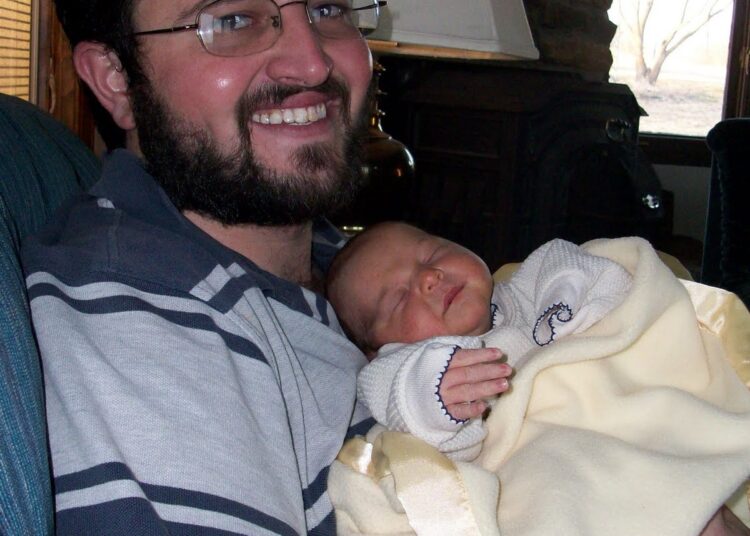Abdullah Bozkurt/Stockholm
A Turkish jihadist who facilitated his radicalized American wife’s militant journey from Libya to Syria through Turkey, a period during which she trained women and girls in suicide bombing and plotted a terrorist attack in the United States, had previously been recruited as an asset by Turkey’s National Intelligence Organization (MIT), according to confidential information obtained by Nordic Monitor.
The man, identified as Volkan Ekren, grew up in secular circles in Ankara but later surfaced as a significant jihadist operative. His transformation from a disillusioned young Turk into a battlefield figure in Libya and Syria was driven largely by his radicalized wife, Allison Elizabeth Fluke-Ekren, known as Umm Mohammed and often described as the “ISIS empress” as well as by his clandestine ties to handlers within the Turkish intelligence service.
Ekren’s recruitment dates back to his time in Libya in 2012, where he fought alongside the jihadist militia Ansar al-Sharia, a faction that operated in parallel with other extremist groups during the post-Gaddafi chaos. The group’s anti-Western posture and its operational presence in Benghazi made it a useful vector for MIT’s covert activities in North Africa, where Turkey sought influence through a network of Islamist proxies.
MIT’s connection to Ansar al-Sharia was so extensive that when the group’s late leader, Mohamed al-Zahawi, was wounded in an airstrike in October 2014, he was reportedly transported to Turkey for medical treatment. His body was returned to Libya three months after his death.
The criminal complaint against Allison Elizabeth Fluke-Ekren was filed on May 15, 2019:
Ekren was managed by a special team of Turkish intelligence officers reporting to Kemal Eskintan, a senior MIT official who at the time headed the agency’s Special Operations Directorate (Özel Operasyonlar Başkanlığı). The unit was responsible for conducting highly classified intelligence missions inside and outside Turkey, operating under direct authorization from President Recep Tayyip Erdogan. He was instructed to keep his ties to MIT secret even from his family members.
Eskintan, a former military officer known among jihadist factions by the alias Abu Furqan, has played a central role in enabling covert Turkish state support for extremist groups not only in Syria and Libya but also in other conflict zones across the Middle East and Africa. He was also a key figure in orchestrating a 2016 false-flag coup attempt in Turkey, an operation designed to consolidate Erdogan’s power, suppress the opposition and reshape the secular Turkish military into an ideologically driven force aligned with the president’s political Islamist agenda.
As part of a secret mandate authorized by Erdogan, Eskintan cultivated ties with Ansar al-Sharia, one of the most influential jihadist factions operating in Benghazi.
Ekren’s work for Ansar al-Sharia was not merely ideological; it served a dual purpose as a feeder channel for MIT’s Libya operations, providing battlefield information, logistical access and contacts with militant cells. The most valuable information he passed to MIT came from the September 11, 2012, attack carried out by the group on the US Special Mission and CIA Annex when four US officials including Ambassador Christopher Stevens were killed.

According to court filings in a US federal case, Ekren returned home carrying a box filled with stolen US government documents taken from the ransacked American facilities. He brought the materials directly into their bedroom and instructed Allison to review them. As she later admitted under oath, she read through the documents, helped him interpret their contents and assisted in producing written summaries that were passed to the leadership of Ansar al-Sharia. A copy was also delivered to MIT.
The documents were not trivial. They came from the American Consulate and contained sensitive US government information. Their recovery by Ansar al-Sharia operatives was significant enough that US intelligence agencies spent months assessing what had been compromised. Volkan and Allison became part of this chain, moving the stolen material through jihadist hands and Turkish intelligence and helping produce the condensed intel briefs.
Ekren and Allison first met as laboratory partners while both were studying at the University of Kansas. It was during this period that 22-year-old Allison converted to Islam and married Ekren in April 2002. The couple went on to have five children. According to multiple witness accounts, Allison was the dominant figure in the relationship and was the one who pushed Ekren toward deeper radicalization.
The Statement of Facts filed by US prosecutors in June 2022 outlines the historical jihadist trajectory of Allison Fluke-Ekren and her Turkish husband, tracing their path from Libya to Syria as they worked for Ansar al-Sharia, Jabhat al-Nusra and later ISIS:
In 2005 the couple experienced a domestic dispute that resulted in a pretrial diversion agreement, but they ultimately remained together. They moved to Egypt in August 2008, where both became involved in circles associated with radical groups. From there they traveled to Libya to engage in jihadist activity on behalf of Ansar al-Sharia and eventually settled on a farm. During this period Allison took the lead in setting up schools for young women and children, where students received military-style training that she described as necessary for self-defense.
She located an abandoned school building to use and secured supplies to launch the program. Ansar al-Sharia approved the project after Ekren, who held an influential position within the group, vouched for it. According to her daughter’s testimony, Allison “would tell us that if we didn’t kill the ‘kuffar’ [nonbelievers], we would be raped. She then would show us videos of Iraqi women being raped by American soldiers. She would make us do exercises in the name of being fit enough to kill.”
In Libya the couple carried out various assignments for the militant group. At one point Allison recruited a Libyan woman who volunteered to travel to Syria and carry out a suicide attack. When the prospective bomber later reconsidered because she had become pregnant, Allison urged her to proceed with the mission and even promised to take care of her child after her death in the planned attack.

The couple later relocated to Turkey, where Ekren had family ties and connections to a network of jihadist groups, many of which operated under the coordination of Turkish intelligence. Through these contacts, they were able to cross the Turkish border into Syria with ease some time in late 2012 or early 2013.
Once inside they joined Jabhat al-Nusra, the main fighting force supported by Turkey’s Islamist government at the time. They settled in an area known as “Maqar al-Shams,” an abandoned factory on the outskirts of Aleppo that served both as a weapons storage site and a residential compound for fighters and their families. Ekren held an influential position in the organization.
Allison sought to create an all-female and girls’ fighting unit and proposed using the factory’s main yard as a training ground, but her plan was rejected by Jabhat al-Nusra, a male-dominated organization that opposed deploying women to the front lines. Despite this, she continued to train her own 10-year-old daughter in the use of an AK-47, an M16 rifle, a shotgun, grenades and even a suicide belt, instructing her in what she described as “both offensive and defensive” combat skills.
The couple frequently traveled between Turkey and Syria, sometimes separately. During one such trip back to Turkey in November 2013, Allison filed passport applications for several family members at the US Embassy in Ankara, where both she and her husband were apparently flagged by American officials. During the interview, consular staff questioned Allison about her Turkish husband, his whereabouts and his activities in Libya. It appeared Ekren and Allison were on the radar of US authorities long before they moved to Turkey from Libya.
Transcript of the sentencing hearing for Allison Elizabeth Fluke-Ekren in the Eastern District of Virginia on November 1, 2022:
In a November 19, 2013, US Department of State report documenting Allison’s interview at the embassy, the consular officer described her demeanor in detail, noting signs of evasiveness. The officer wrote that Allison appeared “to be withholding information based on her atypical non-verbals, (extremely emotional throughout interview, crying, head in hands, hands covering face, limited eye contact, fidgeting with her baby), and potential delay tactics she employed while providing the limited pieces of information on Ekren’s activities in Benghazi.”
Following the interview, Allison became convinced that US authorities were pursuing her and her family. In a panic she gathered her children and fled back to Syria. The couple soon aligned themselves with the Islamic State in Iraq and Syria (ISIS) after breaking from Jabhat al-Nusra, and Ekren quickly rose through the ranks, eventually becoming an emir responsible for all sniper units.
Around 2014 Ekren and his family relocated to ISIS-controlled Mosul, Iraq, where they supported a range of ISIS operations. On June 11, 2014, as ISIS forces swept through northern Iraq and seized Mosul, the militants also stormed the Turkish Consulate-General, taking 49 Turkish nationals and three Iraqi citizens hostage. The captives included the consul general, consular staff, Turkish special forces personnel and several children.

The Erdogan government knew ISIS was about to take over the city and did not order the evacuation of the diplomatic compound, allowing the consulate to fall in order to leverage negotiations with ISIS, secure the release of detained ISIS militants from Turkish jails — enabling them to rejoin the fight in Syria as part of the Erdogan government’s policy of supporting various jihadist factions against the Bashar al-Assad regime — and gain access to the group’s oil smuggling networks.
The Erdogan government knew ISIS was on the verge of capturing the city but did not order an evacuation of the diplomatic compound, effectively allowing the consulate to fall. This opened the door for Ankara to negotiate with ISIS, secure the release of detained ISIS militants from Turkish prisons — enabling them to rejoin the fight in Syria — and gain access to the group’s lucrative oil-smuggling networks.
Turkish military officer Turgay Perişan, a sergeant in the army, later revealed in a trial proceedings in Ankara in 2017 that an elite Turkish Special Forces unit had been assembled and trained in secret for a parachute-raid rescue mission, but the government intervened and ordered the operation cancelled in favor of intelligence-led negotiations.
The then-consul general, Öztürk Yılmaz, later publicly accused senior officials in Turkey of betraying the hostages and colluding with ISIS to facilitate the takeover. He maintained that he resisted for 101 days in captivity, made hundreds of calls to Ankara, and told the court that intelligence officers had been withdrawn before the takeover and that ISIS had inside collaborators at the consulate.
The hostages were finally released in September 2014 after approximately three months of captivity. Ekren was allegedly in the middle of the long-dragged-out negotiations between MIT and ISIS.

The couple returned to Syria in late 2015 to continue their militant activities. That same year, Ekren told associates he wanted to carry out a suicide attack, but ISIS leadership rejected the request, saying he was too valuable to be sacrificed. Instead, he was instructed to remain in his post and continue training new snipers for the organization.
Ekren’s career as both a jihadist and an intelligence asset came to a sudden end in 2016, when he was killed in an airstrike during a reconnaissance mission on a hill used by ISIS while preparing for an attack in northern Syria. His death closed a chapter in MIT’s covert activities but left behind a trail of intelligence footprints showing how Turkish operatives had cultivated relationships with militant actors who later assumed influential roles in terrorist organizations and became involved in a range of violent conspiracies, including plots targeting the United States.
But Allison continued her involvement in jihadist activities, remarrying an ISIS fighter from Bangladesh, Mohammad Zaffer, a specialist in drone warfare. After Zaffer was killed in clashes eight months later, she married yet another ISIS member, remaining embedded in the organization’s ranks.

Court filings show that while living in Syria, Allison spoke openly with her daughter about her desire to carry out a mass-casualty terrorist attack in the United States, saying that any operation that failed to kill large numbers of people was “a waste of resources” and expressing regret that previous ISIS attacks abroad had not taken place on American soil. She boasted about learning to construct explosives and outlined to an ISIS member from Central America a plan to bomb a college campus in the US Midwest. In a separate conversation with an American who had been smuggled into Syria, she defended ISIS’s ideology and said she had no intention of ever leaving its territory.
By early 2017, Allison had risen to lead Khatiba Nusaybah, an all-female ISIS battalion in which she trained more than 100 women and girls, some as young as 10, including her own daughter. She instructed them in the use of AK-47 rifles, grenades and suicide belts, urging recruits to kill “kuffar” and to die as martyrs to help ISIS “expand and remain.” The battalion soon began conducting operations in support of male ISIS fighters defending Raqqa, the group’s de facto capital in Syria, against the US-backed Syrian Democratic Forces (SDF) in 2017.

Allison continued working for ISIS until 2019, when she was first detained by the Kurdistan Workers’ Party (PKK), the Kurdish militant organization that waged a decades-long insurgency against the Turkish state and is closely aligned with the US-backed Syrian Democratic Forces (SDF). Operating as a dominant political and military force across parts of northern Syria, the PKK and its affiliated structures routinely captured ISIS members during the collapse of the group’s territorial “caliphate.”
Allison remained in PKK custody from January to March 2019 before being released or transferred amid shifting battlefield arrangements. She was later detained by Turkish authorities and held in a Turkish prison from June 29, 2021, until her transfer to US custody on January 28, 2022.
With her husband dead and Allison unaware of Ekren’s clandestine backchanneling with MIT, Turkish officials concluded she posed no further intelligence risk. Assessing that she held no actionable knowledge of Turkey’s covert operations, authorities ultimately decided there was no downside in extraditing her to the United States.
On June 7, 2022, Allison appeared in federal court in Virginia and pleaded guilty to terrorism charges. She was sentenced on November 1, 2022, in the Eastern District of Virginia to 20 years in prison for organizing and leading an all-female military battalion in Syria on behalf of ISIS.
The story of Ekren highlights how Turkish intelligence recruitment networks frequently intersected with jihadist structures in Libya and Syria, enabling operatives to move seamlessly between conflict zones and penetrate organizations later designated as terrorist groups by the United States and much of the international community. It also underscores how Ankara’s covert reliance on extremist factions created long-term security risks that extended well beyond the Middle East, allowing radicalized figures like Ekren and his wife to develop the operational know-how that was ultimately directed toward potential attacks against the United States.
Ekren’s role as a MIT-handled jihadist asset stands as a striking example of how intelligence manipulation and militant extremism intersected within Turkey’s shadow war in the region, leaving behind consequences that reached far beyond Ankara’s strategic calculations.












